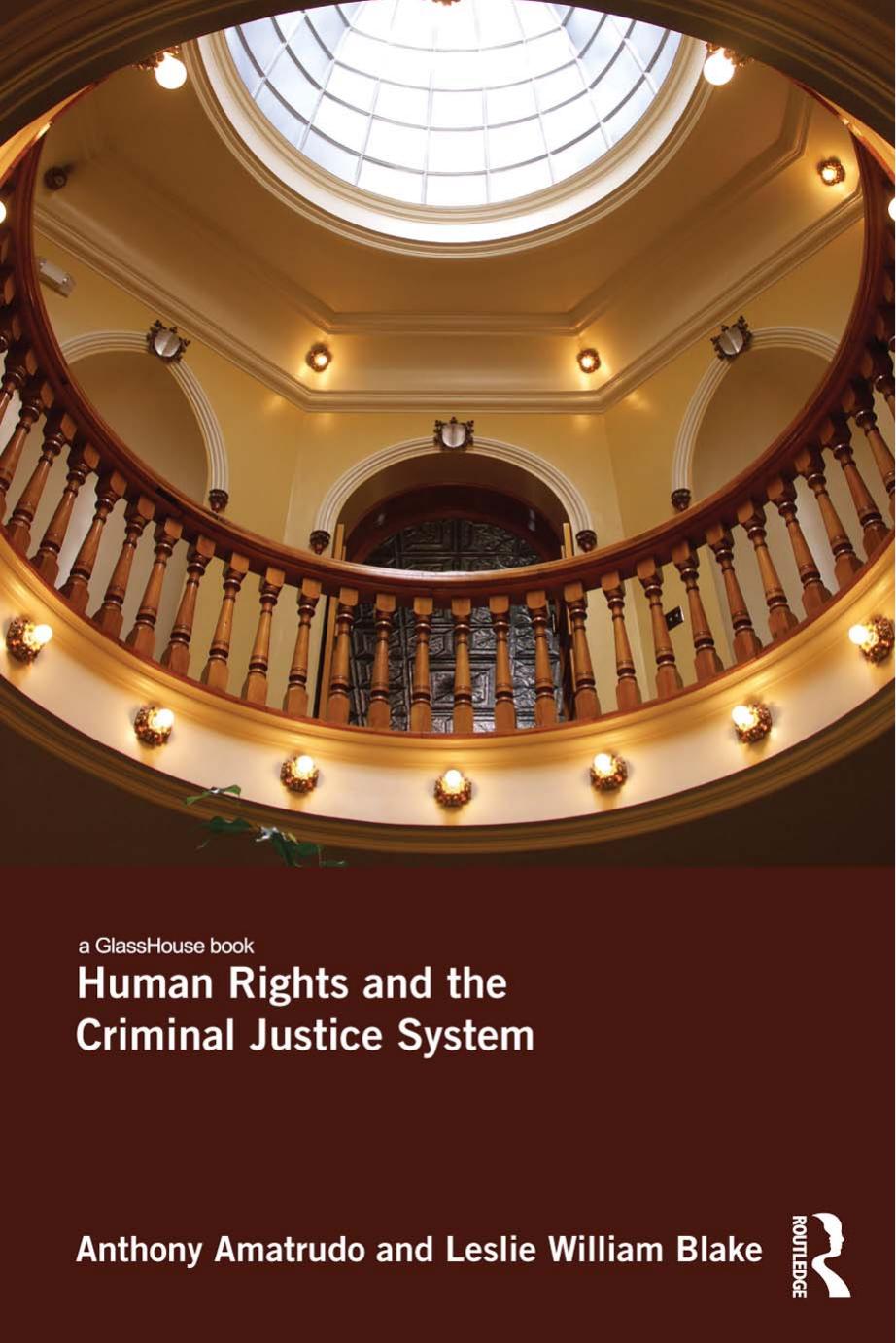Human Rights and the Criminal Justice System by Anthony Amatrudo & Leslie William Blake

Author:Anthony Amatrudo & Leslie William Blake [Amatrudo, Anthony & Blake, Leslie William]
Language: eng
Format: epub, pdf
Tags: International, Civil Rights, Law, General, Criminal Law
ISBN: 9781135145514
Google: kSODBAAAQBAJ
Publisher: Routledge
Published: 2014-09-15T20:57:34+00:00
Chapter 6
Victims, victimology and human rights
Introduction
These are interesting times for the study of victims’ rights and what Ashworth wrote in 2000 still holds true today, namely that there are:
two movements – towards greater penal severity and integrating a victim perspective … so the two different political relationships between escalating sentence severity and developing restorative justice point to two different dangers, which we might call ‘victims in the service of severity’ and ‘victims in the service of offenders’ … these dangers remind us of the need to ensure that the growing interest in promoting the victim perspective should not reduce our vigilance and proper standards and safeguards in criminal justice.1
Ashworth was surely right to set out the precarious, and on-going, balance to be struck between the interests of the wider community and those of the victim. However, our contemporary thinking about human rights has, at its core, a practical notion that those rights can, and should, be upheld by the community at large and that this mechanism needs to be underpinned by a legally backed framework of enforcement. In academic circles the view has taken hold that victims’ rights (i.e. the rights of the victims of crime) are simply another form of human rights. In other words, it is the victim that has the claim upon his or her fellow citizens because they have been wronged: and, because they have been wronged, redress requires that the broader community has to work together, through the mechanism of the criminal justice system to make amends. Therefore, we express our broad support for human rights when we support victims’ rights via the mechanism of the criminal justice system. Victims’ rights discourse is intrinsically political and activist. Matua has stated:
The basic purpose of the human rights corpus is to contain the state, transform society, and eliminate both the victim and victimhood as conditions of human existence. In fact, the human rights regime was designed to respond to both the potential and actual victim, and to create legal, political, social, and cultural arrangements to defang the state. The human rights text and its discourse present political democracy, and its institutions of governance, as the sine qua non for a victimless society.2
We all have the duty to support the rightful claims of victims on this reading. Rorty famously located this requirement to ameliorate victims, in human rights terms, specifically in terms of our innate ability to proffer affection and sympathy for other people, and in an implicit human understanding of the lives of others. Moreover, we should all recognise ourselves as potential victims and, accordingly, we all ought to expect support when wronged.3 Habermas articulated how this process requires law; and he framed the recent debate in terms of what we might call Kantian universalism and set out that all forms of rights become most prescient during times of social change and unrest.4 What is certain is that in addressing the rightful claims of victims, the law (i.e. the legally constituted political community that addresses and upholds rights) collectively expresses the highest legal, moral and political values.
Download
Human Rights and the Criminal Justice System by Anthony Amatrudo & Leslie William Blake.pdf
This site does not store any files on its server. We only index and link to content provided by other sites. Please contact the content providers to delete copyright contents if any and email us, we'll remove relevant links or contents immediately.
The Thirst by Nesbo Jo(5802)
Permanent Record by Edward Snowden(5011)
The Myth of the Strong Leader by Archie Brown(4796)
Spare by Prince Harry The Duke of Sussex(4228)
A Higher Loyalty: Truth, Lies, and Leadership by James Comey(4045)
Secrecy World by Jake Bernstein(3793)
Adulting by Kelly Williams Brown(3687)
The Borden Murders by Sarah Miller(3597)
Fear by Bob Woodward(3269)
Killers of the Flower Moon by David Grann(3263)
The Last Girl by Nadia Murad(3067)
The Secret Barrister by The Secret Barrister(3016)
Future Crimes by Marc Goodman(3010)
American Kingpin by Nick Bilton(2988)
Liar's Poker by Michael Lewis(2823)
The House on Mango Street by Sandra Cisneros(2784)
Graduate Admissions Essays, Fourth Edition: Write Your Way into the Graduate School of Your Choice (Graduate Admissions Essays: Write Your Way Into the) by Asher Donald(2483)
Delicious Torment by Linsey Lanier(2450)
Camino Island by John Grisham(2395)
